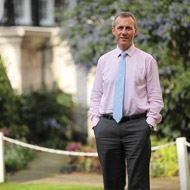
BVA calls for major review of third-country certification
The number of food products requiring veterinary certifications could soar by as much as 325 per cent after Brexit, the UK’s chief veterinary officer has warned.
According to the BVA, Professor Nigel Gibbens made the statement at the Official Veterinarian Conference 2017 (21-22 September 2017). His comments come as the Environment Food and Rural Affairs Committee (EfraCom) conduct an inquiry into the impact of the UK’s trade in food after Brexit.
In its response to the inquiry, published on Friday (20 October), the BVA said that when the UK leaves the EU it may no longer enjoy the same trading freedom and could be treated as a ‘third country’. The organisation is now calling on the government to undertake a major review of third-country certification to ensure Britain has the capacity to fulfil new trade agreements.
BVA senior vice president, Gudrun Ravetz, said: “Vets are absolutely vital to facilitating UK trade by ensuring standards so that consumers at home and abroad have confidence in the food safety and welfare of the products they choose to buy. The veterinary certificate is required not only for meat but a whole range of products such as gelatine in sweets.”
Ms Ravetz also urged the government to guarantee working rights for non-British EU vets and veterinary nurses currently working or studying in the UK.
“Ironically, it is non-British EU vets who make up round 50 per cent of our new workforce each year,” she continued. "However, since the EU referendum, we are facing serious problems in recruiting and retaining EU vets, which makes the need for more vets to perform this crucial trade-task an even more pressing concern.
“Vets' role in the future of UK trade must be recognised and planned for, as an integral part of forthcoming trade negotiations.”
Currently, there are some 1,000 official veterinarians authorised by the government to certify food products for export to third counties from Great Britain. According to the BVA, this number would need to increase significantly to accommodate the rise in certification that could occur post-Brexit.
BVA’s submission to the EfraCom inquiry outlines that access to veterinary medicines could be restricted when Britain leaves the EU. The organisation is, therefore, calling for any new trade deal with the EU to maintain the link with EU veterinary medicine approval systems.
It adds that the UK must prioritise the its high animal health and welfare standards in all trade negotiations when moving forwards.
Image (C) Defra.



 The Animal and Plant Health Agency (APHA) has updated its online reporting service for dead wild birds.
The Animal and Plant Health Agency (APHA) has updated its online reporting service for dead wild birds.